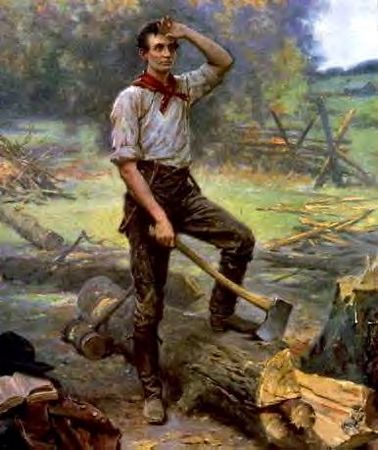
Many years ago, I kept a blog that ran a short series called “A Plague on Words,” in which I criticized certain expressions I thought confusing or unhelpful. My entry on the expression “yeoman’s work” became a top Google search result, and earned me a lot of hate mail. But 12 years later, I pretty much stand by what I wrote. I reproduce the entry here.
“Yeoman’s work” is a term at the outer limits of usefulness in our lexicon. The term commonly refers to some manner of simple, honest work. So we must ask, why say “yeoman’s work” instead of just “simple, honest work,” or “hard work,” or whatever words express the actual meaning one intends to convey? For the reasons I explain below, “yeoman’s work” is probably not a clear or helpful expression and should thus be avoided.
First, most people don’t know what a yeoman is. Indeed, its use appears to be limited to forming half of the term “yeoman’s work.” And a Google search of “yeoman’s work” only returns 144,000 results, suggesting the term is hardly in common use. For these reasons alone, the term is probably a poor aid in conveying meaning.
Making matters worse, Merriam-Webster does not even have a definition for “yeoman’s work.” Instead, we have to search for clues to its meaning in its definition of “yeoman,” as follows:
1 a : an attendant or officer in a royal or noble household b : a person attending or assisting another : retainer c : yeoman of the guard d : a naval petty officer who performs clerical duties
2 a : a person who owns and cultivates a small farm; specifically : one belonging to a class of English freeholders below the gentry b : a person of the social rank of yeoman
3 : one that performs great and loyal service <did a yeoman’s job in seeing the program through>
The reference to “a yeoman’s job” in entry no. 3 above is offered in support of an already vague definition: “one that performs great and loyal service.” Adding to the ambiguity is the definition of “yeomanly” as “in a manner befitting a yeoman: BRAVELY.” This, and “yeoman of the guard,” suggest the primary meaning of “yeoman” is a ceremonial royal attendant rather than a peasant farm laborer, tending to further obscure what is meant by “yeoman’s work.”

It seems fairly obvious that the prevalent usage of the term “yeoman’s work” is meant to describe some manner of hard work. But it is less clear whether the correct image to be conjured is that of a yeoman official or a yeoman farmer. That is, it is unclear whether “yeoman’s work” is meant to describe loyal, fastidious, and regular service as by an official, or simple, repetitive, and laborious work, as by a unskilled laborer.
The relatively few court opinions that have employed the term—14 published opinions across all state and federal jurisdictions—apparently mean to simply convey “hard work.” In these examples, calling to mind an actual yeoman, whether a royal official or a peasant laborer, would not only fail to add more precision to the idea, it would actually confuse the author’s message.
For example, appellate courts have used the term in reference to the diligent hard work done by lower courts or attorneys:

The court did yeoman’s work in holding a prompt hearing, mastering the complexity of the issues and the physical shortcomings of the site, deciding the motion in a timeous fashion, and writing a thoughtful rescript that explained its findings and its rationale. Dealing with the record as it stands, the temporal constraints under which the district court labored, and the deferential standard of review, we have no principled choice but to uphold the challenged order.
Bl(a)ck Tea Soc’y v. City Of Boston, 378 F.3d 8, 15 (1st Cir. 2004).
The yeoman’s work of our judicial system is done by a single judge and a jury. Twelve ordinary citizens of Alabama are asked to sit through long days of often tedious and obscure testimony and pore over countless documents to decide what happened, and, having done so, to apply to these facts the law as the judge has explained it to them. And they do. Often at great personal sacrifice.
United States v. Siegelman, 561 F.3d 1215, 1219 (11th Cir. 2009) cert. granted, judgment vacated sub nom. Scrushy v. United States, 130 S. Ct. 3541 (U.S. 2010) and cert. granted, judgment vacated, 130 S. Ct. 3542 (U.S. 2010).
The appellant has done yeoman’s work in authoritatively arguing that warrantless electronic surveillance is a violation of a person’s Fourth Amendment rights.
State v. Armann, 554, 1982 WL 6176 (Ohio Ct. App. Aug. 18, 1982).
These examples seem to place the emphasis on the laboriousness of their work. Thus, as to the basic question of what sort of “yeoman” is probably meant by the term “yeoman’s work,” it would appear the mental image that better captures the meaning of the propositions is that of a peasant farmer and not a royal official. Describing something as “yeoman’s work,” then, carries the suggestion the work could have been done by anyone, and that the work is valuable only in a quantitative and not a qualitative sense.
In this respect, the term could be considered to be a somewhat backhanded compliment if it is taken to depreciate the merits of the work. For example, describing a researcher’s labor in the investigation of sources as “yeoman’s work” might suggest that the work was limited to the compilation of references and citations, and not to any high-level analysis of those sources to the proposition to be supported.
If this is true, then the only useful application of the term is probably in an ironic sense, as in a recent Seventh Circuit Court of Appeals opinion in United States v. Bailey, 510 F.3d 726, 730 (7th Cir. 2007):
All three defendants are members of gangs, though not the same one. Shane Williams is a member of the Black Disciples, a gang that began in Chicago and was eventually overseen by a man named Sylvester “Star” Mickle. Beginning in 1989, with Mickle at the helm, the Black Disciples developed a far-reaching drug-distribution scheme that ran from their headquarters in Chicago down to Peoria, Illinois. Eventually, Williams joined the operation in Peoria and, after a few years of yeoman’s work selling crack, he came to head his own distribution network in 1996.
Other than scoring some points for employing obscure language to convey simple ideas, “yeoman’s work” is not a useful term. In the aim of clearly conveying meaning, the term should probably be avoided altogether.